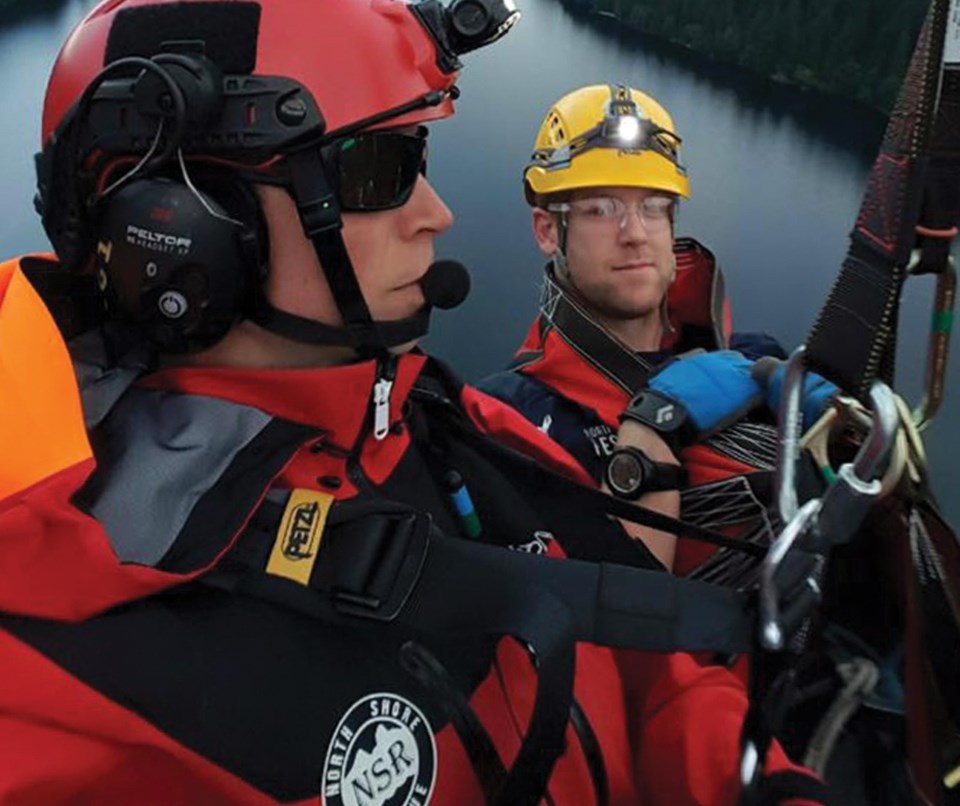Friends don’t let friends hike alone.
That’s the message from North Shore Rescue this week, after three weekend operations to retrieve lost hikers who put themselves at greater risk by venturing out alone.
The team faced near-simultaneous calls on Friday evening, starting with a young woman who called 9-1-1 from Mount Fromme around 7:30 p.m. “She started out doing the Grind and her intention was to go to Goat Mountain. Now, how she ended up on Fromme, we’re not too sure,” said Mike Danks, North Shore Rescue team leader.
The woman wasn’t well-prepared but she did have the foresight to bring an external battery charger, allowing her to recharge her nearly-dead phone battery. From there, rescue volunteers got her GPS co-ordinates and sent a team in on foot.
While they were en route, a 19-year-old man called police from somewhere on Mount Seymour, saying he did not know where he was and that his phone’s battery was about to die. RCMP quickly pinged his phone off nearby cell towers, which placed him just west of Tim Jones Peak, a steep and treacherous area that tends to act like a funnel into Suicide Gully for wayward skiers and hikers, Danks said. The team quickly scrambled a Talon helicopter in response.
“It’s the classic one-hour-before-darkness kind of thing,” Danks said. “There was very little light left and we wanted to ensure we could at least get eyes on where he was to prevent our crews from searching all night, trying to locate him.”
Because the teen was calling from an open boulder field, he was relatively easy to spot and load into a hovering helicopter. The chopper team also picked up the woman on Fromme on the way back to base.
On Sunday evening, a man his early 30s had to be plucked via helicopter long-line from the west side of Crown Mountain, where he had gone off trail trying to get back to Grouse. “He kept powering on, thinking he was eventually going to find the trail. He eventually took a number of falls, the last one being a 10-foot fall,” Danks said.
Fortunately, the man was able to snag himself on a flat spot and prevent serious injury.
“Had he gone in either direction to the side, he would have taken a massive fall and probably would not be with us today,” said Danks.
Travelling alone in the backcountry is something North Shore Rescue never recommends, Danks said.
“These people all went out on their own. If any one of them had gotten hurt and was not able to call for help, they could have died back there. It really highlights for us the need for people to travel with a partner. It really increases the odds of you coming out safely,” he said.
Danks said he would suggest solo hikers contact groups like the B.C. Mountaineering Club or Club Tread’s message boards to find other more experienced people interested in doing that same hike. “There’s always safety in numbers,” he said.



